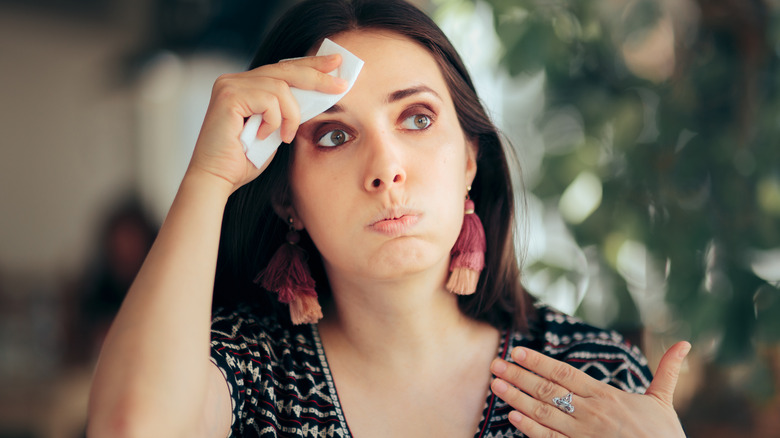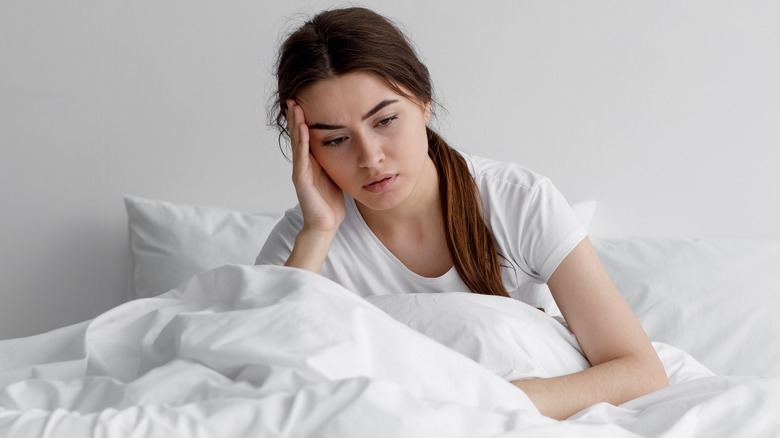Can Early Menopause Hit In Your 20s?
The average age for menopause to start in the United States is 51, and it's during this time that the body undergoes significant changes in hormone levels. According to the Cleveland Clinic, estrogen production drops, triggering irregular periods and, eventually, the end of menstruation. Then, symptoms may kick in including hot flashes, sexual dysfunction, insomnia, aches and pains, mood swings, weight gain, skin and hair changes, and increased urination.
Though menopause generally occurs during a woman's 40s and 50s, with symptoms generally lasting around seven years (per the National Institute on Aging), some experience menopausal transition earlier in life. The Office on Women's Health reports that some people experience early menopause due to genetics, certain health conditions, and lifestyle factors such as smoking, cancer treatments, and surgeries to remove reproductive organs.
In rare cases, early menopause may even strike as early as a woman's 20s. Here's what you should know about premature menopause.
Menopause in your 20s can look similar to menopause
According to Healthline, early menopause is the onset of menopause before the age of 40, including as early as 20 years old. The symptoms are the same as menopause, which occurs later in life for some, but the outcomes may be different. For example, women in their 20s who experience premature menopause are typically unable to conceive naturally. This can be a concern for women who had hoped to bear children during their lifetime. A 2015 research review published in the journal Climacteric also pointed out that those who experience early menopause may be at increased risk of developing mood disorders, cognitive impairment, osteoporosis, and other long-term health issues.
Still, a long, healthy life is possible for women who go through menopause in their 20s. The first step is getting a proper diagnosis from a trusted doctor. The next course of action is often receiving hormone therapy. Dr. Tania Adib, gynecologist and director of The Menopause Clinic at The Lister Hospital, told British Vogue, "It's all about a rebalance in the hormones. ... You're not ovulating, so you're oestrogen dominant, and you're not producing enough progesterone, so you're getting these incredible mood changes — really low mood — feeling teary, not sleeping and feeling exhausted."
Healthline notes that hormone-replacement therapy can treat these uncomfortable symptoms, while also supporting bone and heart health. Other treatments include taking supplements, in-vitro fertilization to cope with infertility, and psychotherapy to help with menopause-related stress.


